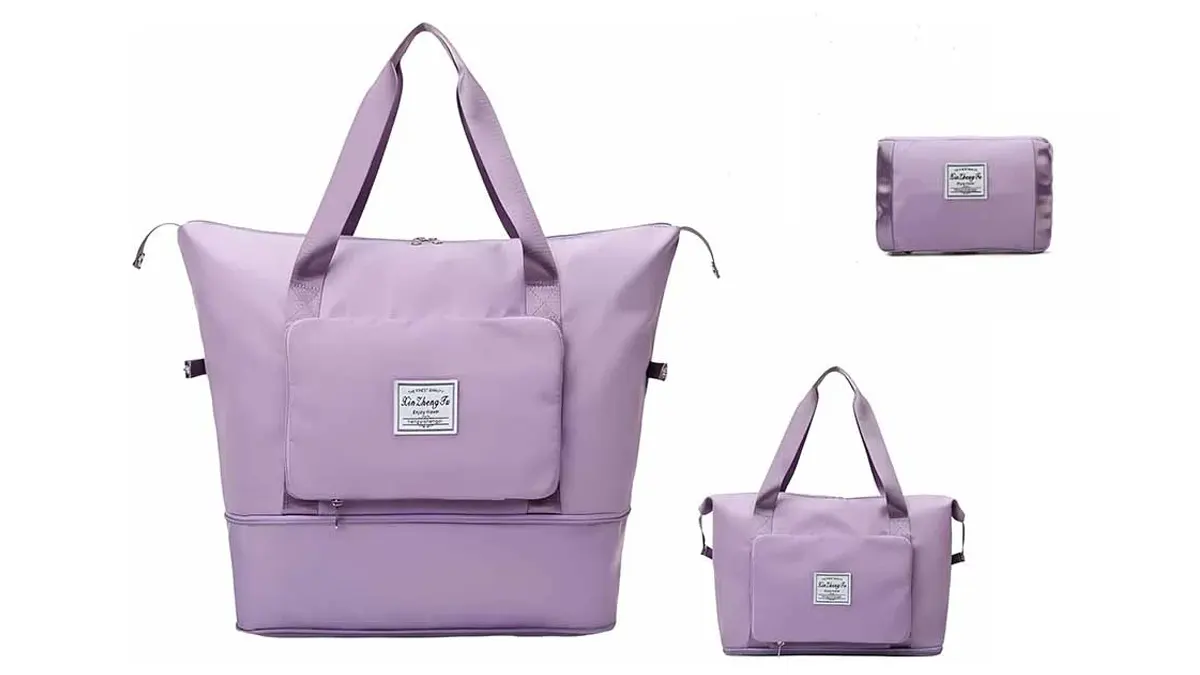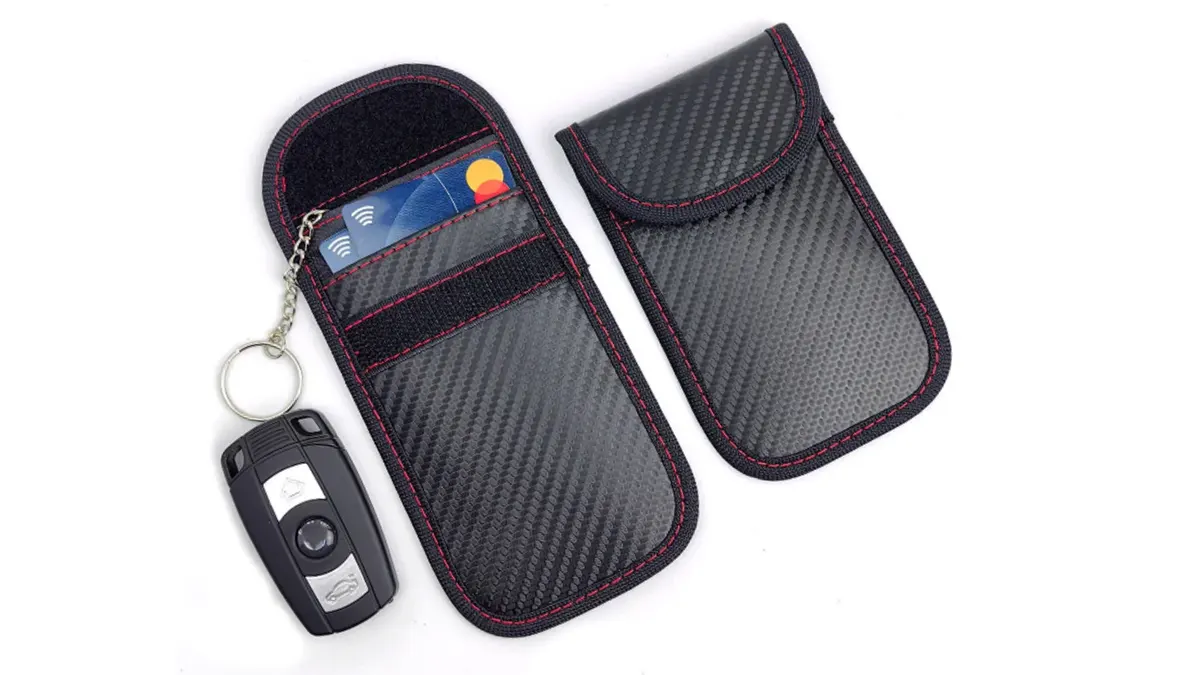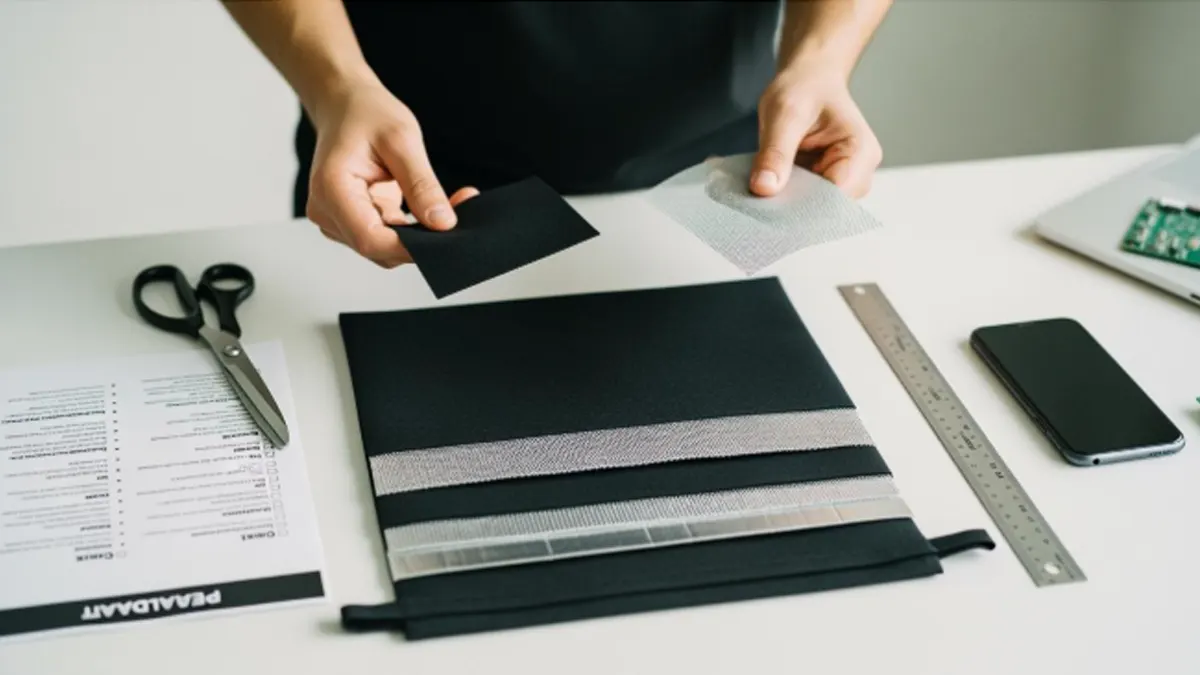Reusable grocery bags, sometimes called reusable shopping bags, are everywhere now. They are eco friendly, sturdy, and help cut down on plastic waste. Many people have a whole collection of them at home because stores encourage using them and often hand them out as promotional items.
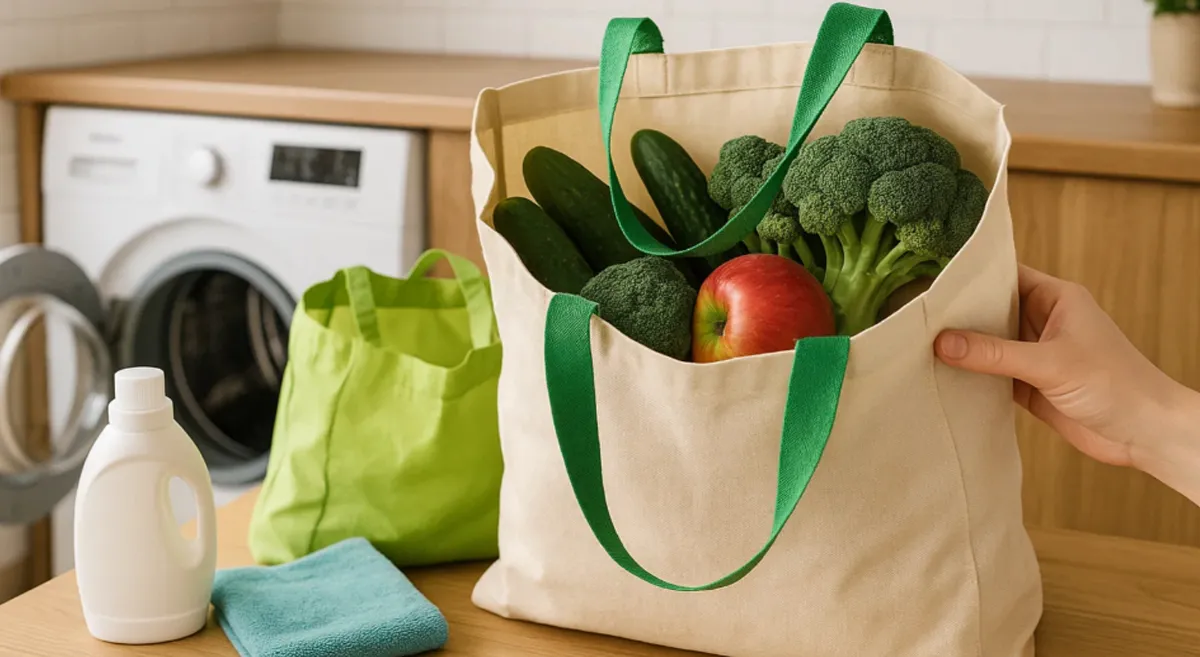
The one thing that many of us forget though is that these bags need regular cleaning. Think about it. They carry vegetables, fruit, canned goods, frozen food, sometimes raw meat or fish. That means bits of dirt, moisture, and bacteria can easily end up inside. Without proper cleaning, even the best bag can turn into something you would not want to put fresh food in.
This guide is here to walk you through everything you need to know about cleaning reusable grocery bags. We will look at why it matters, how different materials need different care, step by step routines, common mistakes to avoid, and tips to keep them fresh. By the end you will have a clear idea of how to keep your bags safe, clean, and ready for every shopping trip.
Why Cleaning Reusable Grocery Bags Matters
At first glance, cleaning a grocery bag might seem unnecessary. After all, they are just bags. But once you think about what goes into them, it becomes pretty clear why regular cleaning is important.

Reusable bags often carry fresh produce that can leave behind soil and bacteria. They might hold meat or dairy products that drip and leak. Even dry goods like flour, sugar, or cereal can leave crumbs behind. Over time, all of this builds up inside the bag.
If the bag is not cleaned, bacteria and mold can grow. That is not only unpleasant because of the smell, but also unsafe for food. A bag that looks perfectly fine may be covered in germs you cannot see.
Regular cleaning also keeps bags looking nicer and lasting longer. Stains and odors can ruin fabric if left untreated. Washing and wiping them down makes sure you get the most use out of every bag, which is the whole point of choosing reusable options in the first place.
So in short: clean bags protect your food, protect your health, and protect your investment.
Different Materials, Different Cleaning Needs
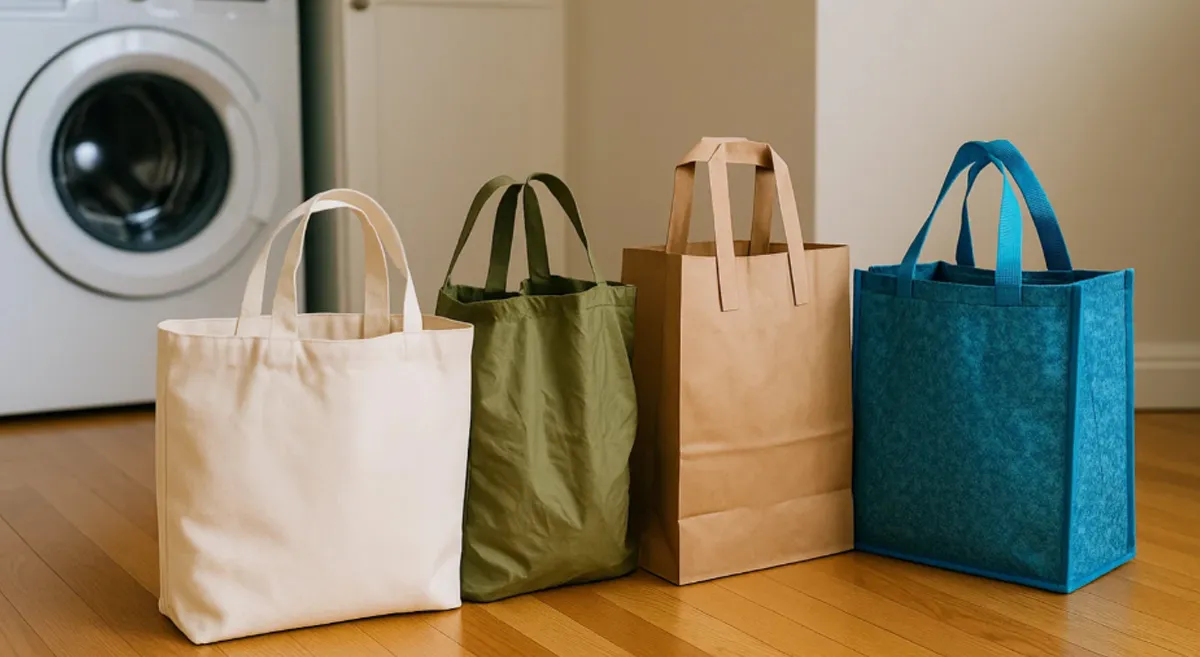
Not all reusable grocery bags are made the same way. The fabric or material matters a lot because each type responds differently to water, soap, or heat. Knowing what your bag is made of is the first step to cleaning it properly.
Here are the main types of reusable bags and how to care for each:
Cotton Tote Bags
Cotton bags are among the most common and most versatile. They are strong, breathable, and can usually handle machine washing.
To clean a cotton tote:
- Shake out crumbs or dirt before washing.
- Put it in the washing machine on a gentle cycle with mild detergent.
- Use cold or warm water, not hot, to prevent shrinking.
- Air dry the bag rather than using a dryer, since heat can shrink the fabric.
If the bag has a printed logo, turn it inside out before washing to protect the design.
Non Woven Bags
Non woven bags are lightweight and inexpensive. They are made from polypropylene fibers pressed together rather than woven like cloth. This makes them sturdy but not suited for machine washing.
To clean a non woven bag:
- Wipe the inside and outside with a damp cloth or sponge and mild soap.
- Rinse gently if needed, but do not soak.
- Let the bag air dry completely before storing it.
Non woven bags can lose shape or tear if exposed to too much water, so stick to spot cleaning.
Nylon and Polyester Foldable Bags
These are the ones that fold into a tiny pouch or roll up neatly. They are durable, water resistant, and usually very easy to clean.
To clean nylon or polyester bags:
- Fill a sink or basin with warm soapy water.
- Submerge the bag and gently wash it by hand.
- Rinse thoroughly to remove all soap.
- Hang or lay flat to air dry.
These bags dry quickly and can be washed often without losing strength.
Jute Bags
Jute bags have a rustic, natural look and are often used for farmers markets. They are strong but not very water friendly. Jute fibers absorb moisture easily and can become weak if soaked.
To clean jute bags:
- Brush off dirt or crumbs with a dry cloth.
- Wipe gently with a slightly damp cloth if necessary.
- Air them in a dry, ventilated place.
Avoid soaking jute bags or leaving them in damp areas, as mold can form quickly.
Insulated Bags
Insulated bags are lined with materials that keep food hot or cold. These are perfect for frozen items or fresh meat, but they require extra attention because spills are common.
To clean insulated bags:
- Wipe the inside with warm soapy water or disinfectant wipes.
- Pay attention to seams and zippers where food particles can hide.
- Rinse with a damp cloth and let dry completely.
- Leave the bag open to air out after every use.
These bags should never go in the washing machine, as the lining can get damaged.
Table: Cleaning Methods by Material
| Bag Material | Can You Machine Wash | Best Cleaning Method | Drying Tips |
|---|---|---|---|
| Cotton Tote | Yes, gentle cycle | Wash with mild detergent, cold or warm water | Air dry, avoid heat |
| Non Woven | No | Wipe with damp cloth and soap | Air dry fully |
| Nylon/Polyester | Sometimes (check label) | Hand wash in soapy water | Quick air dry |
| Jute | No | Brush off dirt, wipe with damp cloth | Keep in dry ventilated place |
| Insulated | No | Wipe with soapy cloth or disinfectant | Leave open to air dry |
Why Material Matters in Real Life
Imagine this. You come home from the market with a jute bag full of potatoes. Dirt falls inside, so you figure you will just rinse it with water. But a week later, the bag smells musty and the fibers are fraying. That happens because jute and water do not mix.
Now picture a nylon foldable bag after a spill of orange juice. If you toss it in the machine, the fabric might survive, but the seams could weaken. A quick hand wash would have done the trick instead.
These examples show why matching the right cleaning method with the right material is key. A little knowledge up front saves you from ruining a good bag.
Step by Step: General Cleaning Routine
Cleaning reusable grocery bags is not complicated, but it does help to follow a simple routine. Once you get into the habit, it becomes second nature.
First, always empty the bag completely. That means taking out receipts, crumbs, and anything that has slipped into the corners. A quick shake outside can remove dust or dirt.
Second, look at the bag closely. Is it made of cotton, nylon, non woven fabric, jute, or does it have an insulated lining? The cleaning method depends on that, so knowing the material is important.
Third, wash or wipe according to the right method. Cotton totes can go in the washing machine. Nylon foldable bags can be hand washed in warm soapy water. Non woven bags should be wiped with a damp cloth. Jute should be kept dry and just brushed off. Insulated bags should be cleaned inside with soap or a disinfectant wipe.
Fourth, dry the bag completely. This is one of the most important steps because moisture left inside can lead to odors and mold. Air drying is the safest method. For cotton or nylon bags, you can hang them up. For insulated bags, leave them open so air circulates inside.
Finally, put the bags back in their usual storage spot. Keeping them in the same place each time makes it easier to grab them when you go out shopping.
If you make this process part of your grocery routine, your bags will stay fresh and last longer.
Hygiene Tips to Keep Bags Fresh
Cleaning bags is not just about keeping them looking nice, it is about hygiene too. Grocery bags touch food every time you use them, so they need the same care you would give to kitchen tools. You would not chop vegetables on a dirty cutting board, and the same idea applies here.
A simple trick is to rotate your bags. Instead of reaching for the same one over and over, switch them around so each bag has time to dry and air out. It also helps to separate how you use them. Keep a few just for dry goods, others for produce, and a dedicated insulated bag for meat or fish. That way you do not mix everything together, and you know which bag needs the most attention.
Air circulation is another easy win. Even if you did not wash the bag after a trip, leave it open in a ventilated spot for a while. It dries out any hidden moisture and keeps odors from settling in. For extra freshness, tuck a small sachet of lavender or a little pouch of baking soda into the basket or bin where you store your bags.
And do not forget quick wipes. After each shopping trip, especially if you carried raw food, run a damp cloth with mild soap across the inside of the bag before putting it away. It only takes a minute but makes a big difference.
These small habits keep your bags clean, fresh, and safe for groceries. Over time they also help the bags last longer and save you the trouble of replacing them too soon.
Common Mistakes to Avoid
Many people treat reusable bags like something that will last forever. In reality, they need a little care. Here are some common mistakes to avoid:
- Storing bags while dirty. Tossing a bag back into the pile with food stains spreads bacteria to the rest of the bags.
- Ignoring smells. A musty smell is not harmless. It usually means mold or bacteria. Wash the bag or replace it if the smell does not go away.
- Folding bags while damp. Even a little moisture can cause mold. Always let them dry fully.
- Leaving them in the car all year. Heat and humidity are tough on cotton and jute bags. They fade, weaken, and can grow mold if left in a hot trunk.
- Stuffing bags into tight spaces. Forcing them into a tiny drawer bends handles and weakens seams. Give them room to breathe.
- Forgetting to put them back. After unloading groceries, make it a habit to wash, dry, fold, and return them to their storage spot.
Avoiding these mistakes is simple, and it makes your bags last much longer.
Table: Mistakes and Fixes
| Mistake | Why It Is a Problem | Simple Fix |
|---|---|---|
| Putting dirty bags back | Spreads bacteria and odors | Wash or wipe before storing |
| Ignoring musty smells | Signs of mold growth | Wash thoroughly or replace bag |
| Folding while damp | Encourages mildew | Air dry completely first |
| Leaving bags in hot car | Weakens cotton or jute, causes mold | Keep only nylon or polyester bags in car |
| Overstuffing storage | Damages handles and seams | Store in larger bin or hang neatly |
| Forgetting to return bags | Leads to buying more plastic at checkout | Create a routine: wash, dry, fold, return |
FAQ
Can I wash reusable grocery bags in the washing machine
Yes, if they are cotton or sometimes polyester. Use a gentle cycle with mild detergent and cold or warm water. Do not put non woven, jute, or insulated bags in the machine. Those need to be wiped or brushed.
How often should I clean my reusable bags
It depends on use. If you carry raw meat or produce, clean them right after. Otherwise, every one to two weeks is fine for regular use. Insulated bags should be wiped after each trip.
My bag smells even after washing. What should I do
Try soaking a cotton or nylon bag in a mix of vinegar and water before washing again. For non woven or jute bags, odors usually mean it is time to replace them.
Can I put reusable bags in the dryer
It is better not to. Heat can shrink cotton and damage seams or logos. Air drying is always safer.
Can reusable bags carry both groceries and gym clothes
You can, but it is better to keep them separate. Sweat and moisture from clothes can make grocery bags smell bad.
How many reusable grocery bags should I have
Most households do well with six to eight. That way you always have enough, even if some are being washed.
What is the quickest way to freshen a bag
For cotton or nylon, a quick hand wash with soap and water does the trick. For others, a disinfectant wipe followed by airing outside works well.
Conclusion
Cleaning reusable grocery bags is simple, but it makes a huge difference. Fresh bags keep your groceries safe, prevent odors, and last much longer. A routine of washing, wiping, drying, and storing pays off every time you shop.
At Initi, we know bags inside and out because we make them. From cotton totes and non woven shopping bags to foldable nylon, jute, and insulated bags, we manufacture durable options for daily use. If you need bulk orders or custom printing for your business, we can help. Contact us today for samples or a quick quote.

